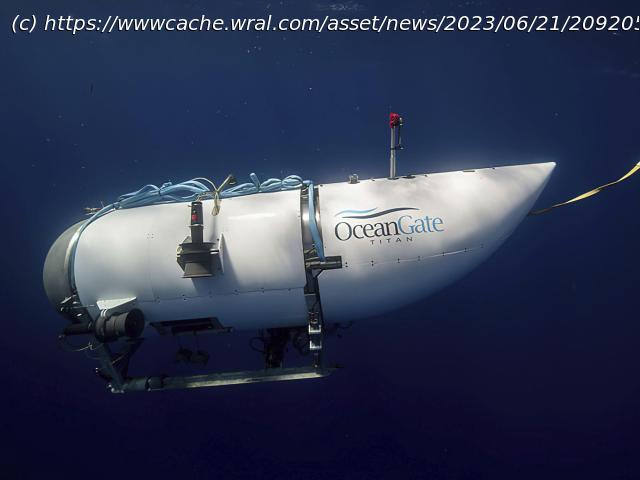The race against time to find a submersible that disappeared on its way to the Titanic wreckage site entered a new phase of desperation on Thursday morning as the final hours of oxygen possibly left on board the tiny vessel ticked off the clock.
The race against time to find a submersible that disappeared on its way to the Titanic wreckage site entered a new phase of desperation on Thursday morning as the final hours of oxygen possibly left on board the tiny vessel ticked off the clock.
Rescuers have rushed more ships and vessels to the site of the disappearance, hoping underwater sounds they detected for a second straight day might help narrow their search in the urgent, international mission. But the crew had only a four-day oxygen supply when the vessel, called the Titan, set off around 6 a.m. Sunday.
Even those who expressed optimism warned that many obstacles remain: from pinpointing the vessel’s location, to reaching it with rescue equipment, to bringing it to the surface — assuming it’s still intact. And all that has to happen before the passengers’ oxygen supply runs out.
The full area being searched was twice the size of the U.S. state of Connecticut in waters as deep as 13,200 feet (4,020 meters). Captain Jamie Frederick of the First Coast Guard District said authorities were still holding out hope of saving the five passengers onboard.
“This is a search-and-rescue mission, 100%,” he said Wednesday.
The area of the North Atlantic where the Titan vanished Sunday is also prone to fog and stormy conditions, making it an extremely challenging environment to conduct a search-and-rescue mission, said Donald Murphy, an oceanographer who served as chief scientist of the Coast Guard’s International Ice Patrol.
Meanwhile, newly uncovered allegations suggest there had been significant warnings made about vessel safety during the submersible’s development.
Frederick said while the sounds that have been detected offered a chance to narrow the search, their exact location and source hadn’t yet been determined.
«We don’t know what they are, to be frank,” he said.
Retired Navy Capt. Carl Hartsfield, now the director of the Woods Hole Oceanographic Systems Laboratory, said the sounds have been described as “banging noises,” but he warned that search crews “have to put the whole picture together in context and they have to eliminate potential manmade sources other than the Titan.”
The report was encouraging to some experts because submarine crews unable to communicate with the surface are taught to bang on their submersible’s hull to be detected by sonar.
The U.S. Navy said in a statement Wednesday that it was sending a specialized salvage system that’s capable of hoisting “large, bulky and heavy undersea objects such as aircraft or small vessels.






